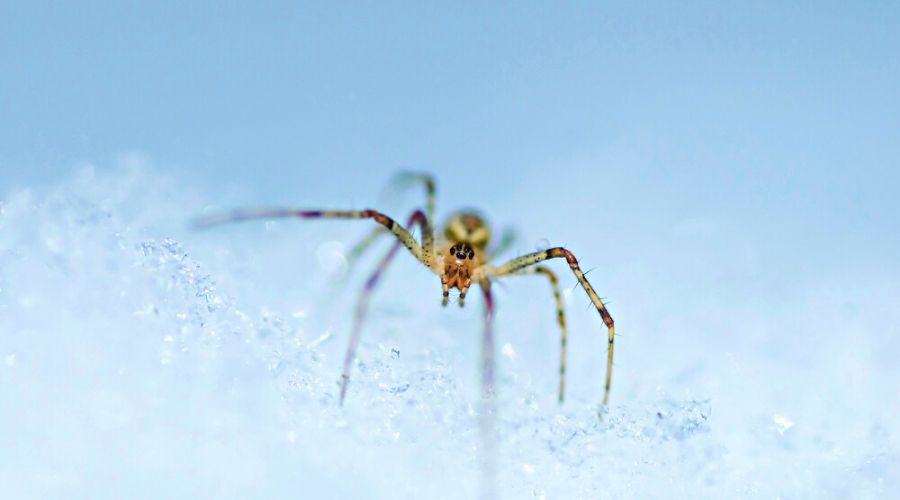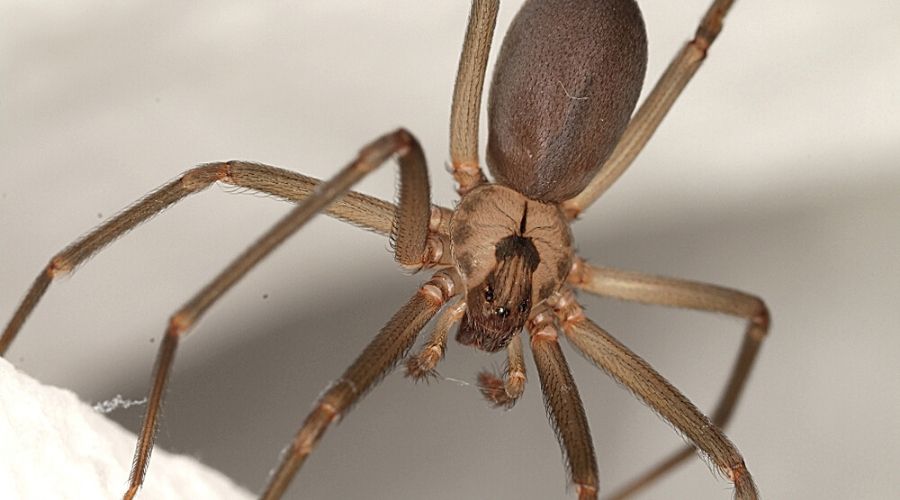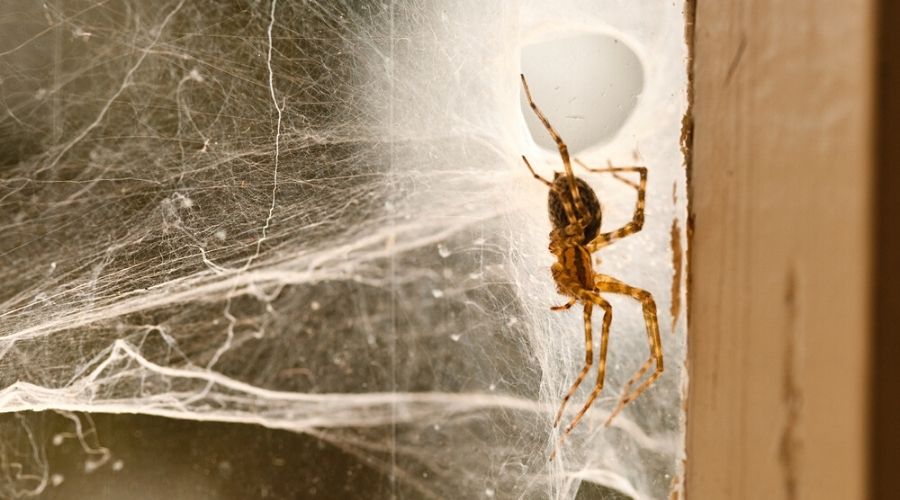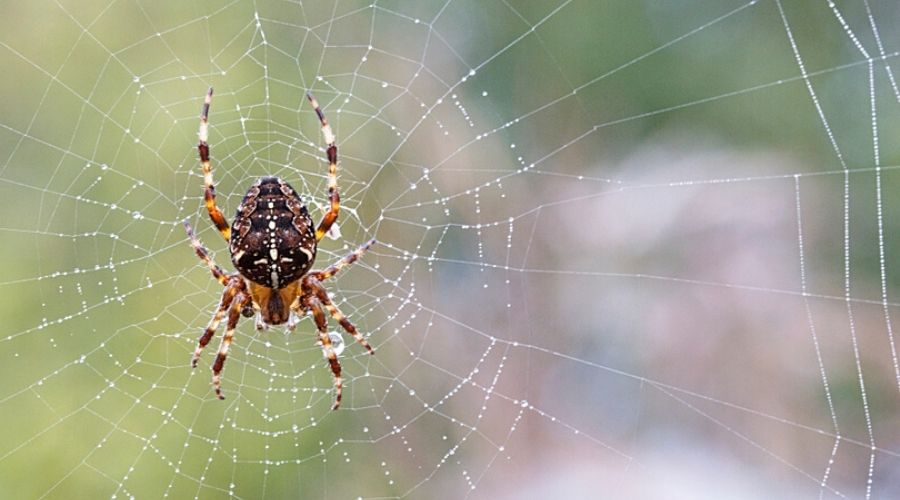Spiders populate homes at all times, no matter the season. Fewer than 5% of the spiders you see in your home have ever set foot outside.
Even in the winter months, the average house spider will remain active. But, what about outdoor spider species? They’ve adapted to cold weather, too, in remarkable ways. Let’s break down various types of spiders and what they do during the winter.
House Spiders: What Are They?
While all spiders produce silk threads, not every species spins a web to catch prey. Web-building spiders craft designs that range from complex lines to a single, sticky strand of silk.
The spiders that don’t build webs are hunting spiders. They use other clever means to hunt for food. Some, such as the trapdoor spider, will ambush their prey by popping out of a hole in the ground. Others, such as the jumping spiders, will stalk their prey and then leap on it. Indoor spiders will feast on various insects, from cockroaches to flies.
What Happens to Spiders in The Winter?

Contrary to popular belief, most spiders don’t migrate indoors when the mercury starts heading downwards. As the temperatures cool off in late summer, outdoor spiders adapt by building up antifreeze in their tissue. This glycol compound “supercools” the spider without freezing it.
Spiders then seek out a place to hide for the winter. They often make their way through the snow and top layer of soil. There, they have insulation from the worst of the cold. However, they can still move and hunt prey.
Some spiders will hunker down for the winter in pods. They build these pods and sacs in chimneys, downspouts, and cracks in walls on your property.
Where Do Spiders Live in the Winter?
Spiders adapt to their environments and will live just about anywhere. They are cold-blooded creatures who enter a diapause phase during the winter. It’s a bit like hibernation.
This state is a pause in the spider’s development. Reduced temperatures, poor food supply, and a change in daylight hours are the three main reasons a spider enters this state.
During diapause, the spider becomes sluggish and seeks out quiet, safe spaces – under rocks, in piles of leaves, or tucked into tree bark. They bide their time until the environmental conditions become more favorable.
When Do Spiders Re-Emerge After the Winter?
As the temperature begins to warm up, all kinds of insects hatch or emerge. Spiders re-emerge at this time, too.
Spiders are not attracted to heat and can live quite comfortably in a wide temperature range. Most spiders prefer temperatures hovering around 70 degrees.
A Wintertime Menace: The Brown Recluse

The brown recluse is also known as the fiddleback spider because of the violin-shaped marks on its back. It grows to about an inch long and is brown. It is, as its name suggests, a recluse. It will bite if it’s disturbed. Corners in cabinets, crawlspaces, and closets are among its favorite hiding spots.
The bite from a brown recluse spider is quite painful and a serious health concern. The tissue around the bite wound often becomes ever-expanding ulceration. If you get bitten by a brown recluse, please call a health care provider right away.
How to Prevent Spiders
Spiders play an important role in the ecosystem, and most are quite harmless. Still, that doesn’t mean you want a spider infestation in your home. There are a few things that you can do to prevent them from taking over in the winter.
- Eliminate all possible entry points. This includes sealing gaps and cracks in your home’s foundation, fixing ripped screens, and replacing broken weather stripping and door sweeps.
- Use natural spider deterrents like eucalyptus, peppermint, and tea tree.
- Eliminate the other pests that attract them. It’s wise to call a professional for an inspection because each pest requires a different elimination method.
How to Keep Spiders Out

The best way to control spider populations in your home is to leave it to the professionals. Romney Pest Control has been providing top-of-the-line pest control for over 10 years. We service Dallas-Fort Worth, Austin, San Antonio, and Houston. Our highly-trained professionals guarantee quality work. Feel free to contact us today for an inspection or more information.




